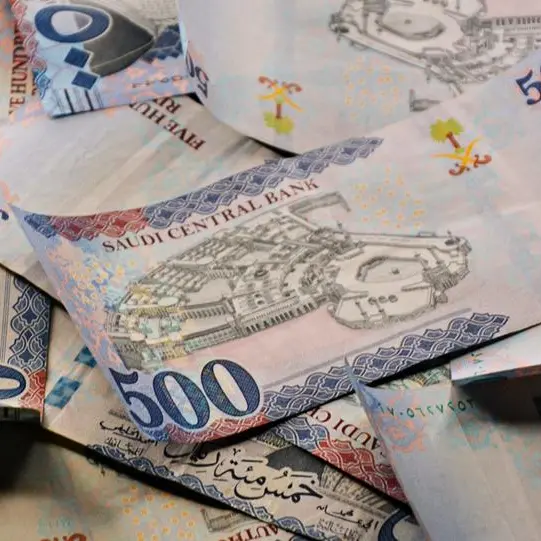14 August 2017
Bahrain’s non-oil sector grew by 4.4 percent in the first quarter of the year but experts expect the overall economy to slow down both this year and next on the back of the economic slowdown in neighbouring Saudi Arabia and continued low oil prices.
“Growth in Bahrain’s economy is, in many ways, dependent on Saudi Arabia’s and therefore if declines are forecast over the short term in this large, neighbouring powerhouse, as a result of extended oil sector turbulence, then there will undoubtedly be a knock-on-effect in the local market even if non-oil sector growth is positive,” said James Lynn, director for research and consultancy at CBRE in Bahrain. According to a forecast by ratings agency Moody’s, GDP growth in Bahrain is set to decline to around 2 percent in 2017-2018, down from 3.1 percent in 2016. The non-oil economy is also expected to slow to 2.5 percent in 2017-18, from 3.7 percent in 2016.
Lynn said growth in Bahrain’s financial services, transport and communications sectors, as well as a surge in the hotels and restaurants market that expanded by 12.3 percent year-on-year in the first three months of the year reflected positively on the country’s non-oil sector.
“Continued diversification into non-oil sectors remains the focus of government efforts, with the objective of boosting the Bahrain economy and this is largely centred around tourism and manufacturing,” Lynn said.
The 4.4 percent growth in Bahrain’s non-oil economy in the first quarter of 2017 was an increase on the 3.7 percent growth experienced a year before, according to Bahrain Economic Quarterly, a publication produced by Bahrain's Economic Development Board.
The economy of Bahrain, like most other Gulf states, was harmed by the steep drop in oil prices that hit the region in 2014 and the economic slowdown that followed it. Saudi Arabia, the world's biggest exporter of oil, posted a record budget deficit of nearly $100 billion in 2015.
Lynn said the expected implementation of a new value-added tax (VAT) in the Gulf region next year could act as a further brake on growth.
“CBRE expects that there will be a period of uncertainty among governments, businesses and individuals as VAT is rolled out across the GCC region in 2018, given that the direct as well as indirect impacts are still largely unknown. This will likely delay decision-making at all levels of the economy as investors assess the resultant changes in risk profiles.”
© Zawya 2017
Bahrain’s non-oil sector grew by 4.4 percent in the first quarter of the year but experts expect the overall economy to slow down both this year and next on the back of the economic slowdown in neighbouring Saudi Arabia and continued low oil prices.
“Growth in Bahrain’s economy is, in many ways, dependent on Saudi Arabia’s and therefore if declines are forecast over the short term in this large, neighbouring powerhouse, as a result of extended oil sector turbulence, then there will undoubtedly be a knock-on-effect in the local market even if non-oil sector growth is positive,” said James Lynn, director for research and consultancy at CBRE in Bahrain. According to a forecast by ratings agency Moody’s, GDP growth in Bahrain is set to decline to around 2 percent in 2017-2018, down from 3.1 percent in 2016. The non-oil economy is also expected to slow to 2.5 percent in 2017-18, from 3.7 percent in 2016.
Lynn said growth in Bahrain’s financial services, transport and communications sectors, as well as a surge in the hotels and restaurants market that expanded by 12.3 percent year-on-year in the first three months of the year reflected positively on the country’s non-oil sector.
“Continued diversification into non-oil sectors remains the focus of government efforts, with the objective of boosting the Bahrain economy and this is largely centred around tourism and manufacturing,” Lynn said.
The 4.4 percent growth in Bahrain’s non-oil economy in the first quarter of 2017 was an increase on the 3.7 percent growth experienced a year before, according to Bahrain Economic Quarterly, a publication produced by Bahrain's Economic Development Board.
The economy of Bahrain, like most other Gulf states, was harmed by the steep drop in oil prices that hit the region in 2014 and the economic slowdown that followed it. Saudi Arabia, the world's biggest exporter of oil, posted a record budget deficit of nearly $100 billion in 2015.
Lynn said the expected implementation of a new value-added tax (VAT) in the Gulf region next year could act as a further brake on growth.
“CBRE expects that there will be a period of uncertainty among governments, businesses and individuals as VAT is rolled out across the GCC region in 2018, given that the direct as well as indirect impacts are still largely unknown. This will likely delay decision-making at all levels of the economy as investors assess the resultant changes in risk profiles.”
© Zawya 2017




















